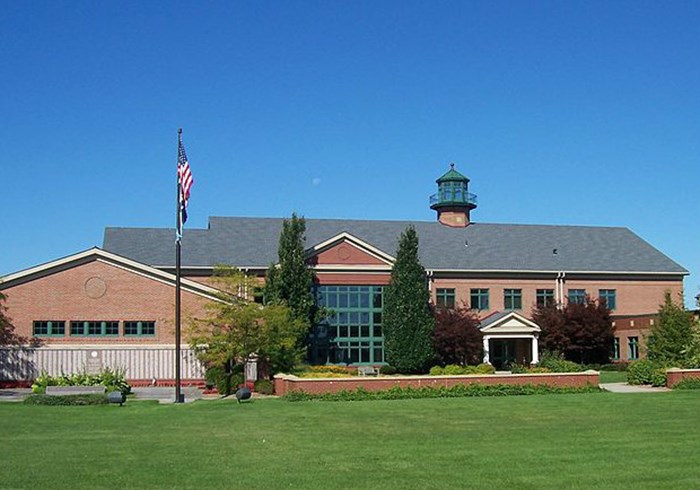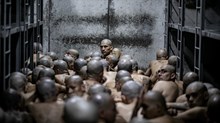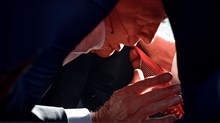
Updated:
During today's oral arguments at the US Supreme Court, conservative justices seemed reluctant to entertain major changes in the legislative prayer standards set by the Marsh case: Don't proselytize and don't demean the faith (or no faith) of others.
For an unofficial transcript of the oral arguments, click here.
During the session, the justices questioned attorneys about the historical practice of legislative prayer during the early years of Congress and whether the argument that "we've always done it this way" still holds true today.
According to media reports:
Justice Anthony Kennedy, who could be the swing vote in the case, worried that enforcing standards for clergy to follow would involve governments in "censorship" and "the approval or disapproval of prayers." In such cases, he said, "This involves government very heavily in religion." And Justice Elena Kagan, who like several of the court's liberal justices was clearly bothered by the predominance of Christian prayers in Greece, [NY] agreed that coming up with a solution was not "an easy question." When the high court intervenes in matters of church and state, she said, it always seem to make the problem worse.
In a statement, Eric Rassbach, deputy general counsel at the Becket Fund for Religious Liberty, said, "This case is about whether the professionally offended will be able to strong-arm cities into banning anything that could be remotely interpreted as religious. Courts should get out of the business of trying to make everyone happy with the government. All too often it is the grouchiest members of society who get their way, at the expense of honoring religious diversity."
+++
After a six year struggle, two women, Linda Stephens and Susan Galloway from Greece, New York, will get their day before the U.S. Supreme Court as they seek to stop their Town Council from permitting public prayer, especially by Christian ministers, at council sessions.
Oral arguments are scheduled to take place today before the high court in Greece v. Galloway, the first time in decades that justices have taken on a case involving legislative prayer.
Scotusblog offers this summary:
Thirty years ago, in Marsh v. Chambers, the Supreme Court held that the Nebraska legislature could begin its legislative sessions with prayers led by a chaplain who was employed by the legislature. But the Court has never settled when legislative prayers go too far and cross the line separating church and state. Since 1999, the town of Greece, New York, which is outside Rochester, has started its town council meetings with a prayer led by members of the local clergy or local residents. [Its] decision could have a wider impact on the law governing the intersection of church and state.
The case was started in 2007, and a lower court ruled that the prayers were unconstitutional because the mostly Christian clergy who offered the prayers would use the phrase, "Let us pray," and they frequently used the words "Jesus," "Your Son," and "Holy Spirit."
In one instance, a pastor asked at a council meeting, "Would you bow your heads with me as I pray?"
The lower court ruled such prayers suggested the town government was endorsing Christianity and the clergy were speaking on behalf of the town. Galloway and Stephens believe these prayers are "coercive" and exclude other religions and non-believers. In 2008, the Greece Town Council allowed clergy from other faiths to offer prayers.
Court observers believe it is likely that the Supreme Court took the case on in order to reverse the lower court's ruling.
But it's not clear yet on what basis their ruling might be, or whether their will grant a larger, broader, and more durable protection to legislative prayer. Or, the court could rule to narrow the places where such prayers may be offered without violating the constitution.
The case has stirred strong feelings on both sides of the public prayer debate.
"By opening a local government meeting with an exercise of religious devotion, a political assembly is transformed into a religious congregation," said Hollyn Hollman, general counsel for the Baptist Joint Committee for Religious Liberty, according to media reports. "It is because of — not in spite of — the importance of prayer and religion that we object to this government assumption of religious functions." The Baptist Joint Committee represents a broad cross-section of Baptists groups including the Cooperative Baptist Fellowship.
This past summer, a visiting journalist in Greece, New York, noted:
The dispute has turned bitter at times. Galloway and her friend, Linda Stephens, a retired school librarian, say they have received anonymous letters warning them to "be careful." Stephens woke up one morning to discover someone had dug up her mailbox and placed it on top of her car. The town rejects their complaint, arguing that it hasn't shut out members of other faiths. Officials say the opening prayer has been delivered by a Jewish man, a Bahai leader and a Wiccan priestess who invoked Apollo and Athena. "People from other faiths did volunteer, which is great," said one of Greece's lawyers, Brett Harvey of the Alliance Defending Freedom in Scottsdale, Arizona. "The town has no problem with any of that."
The Obama administration this summer filed a friend-of-court brief, advising the court that the prayers by clergy in this case were not intending to proselytize or demean another religion. Therefore, the prayers fall within the boundaries of the Marsh ruling.
CT will update this article after oral arguments are complete.

Support Our Work
Subscribe to CT for less than $4.25/month


















